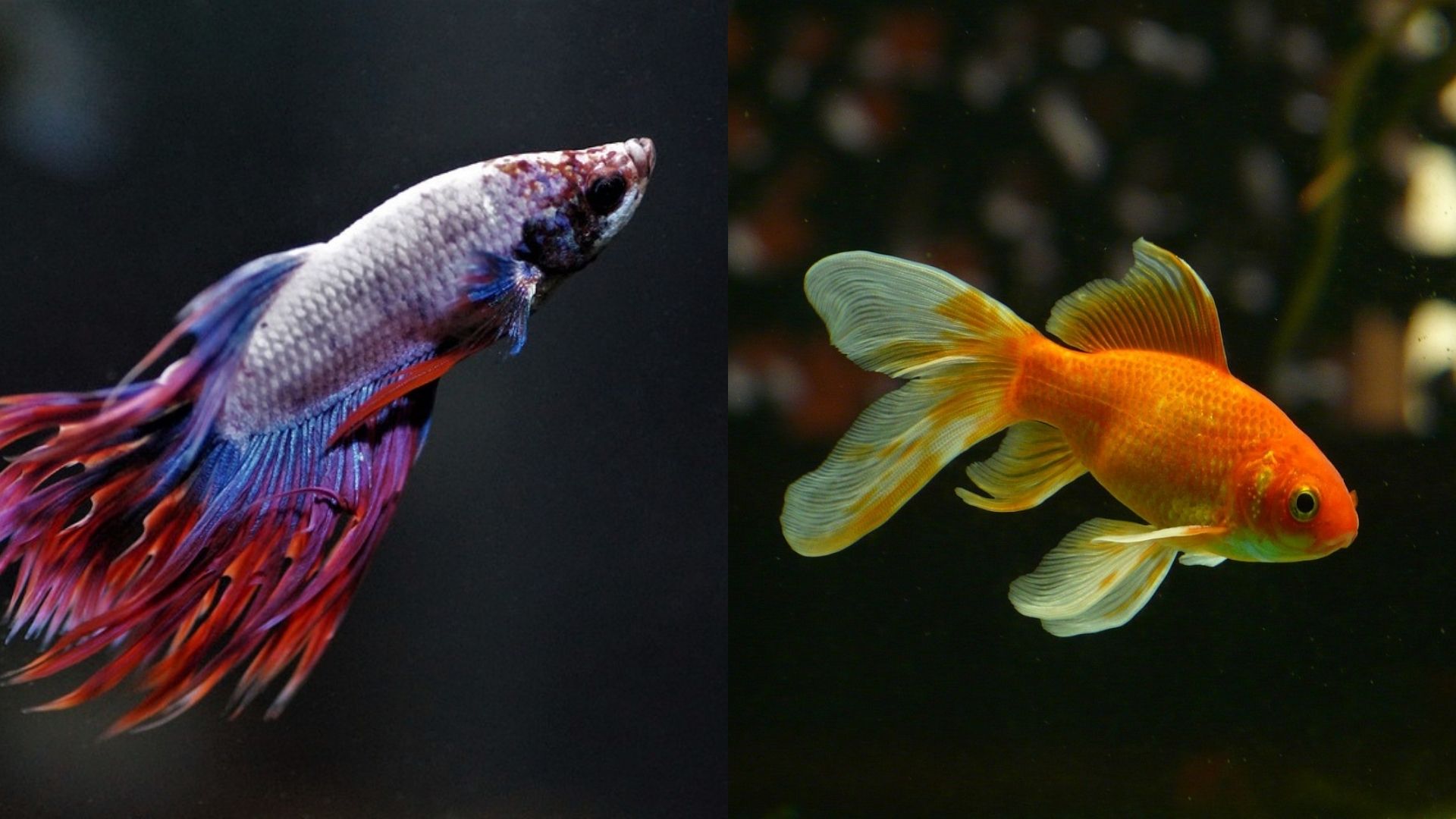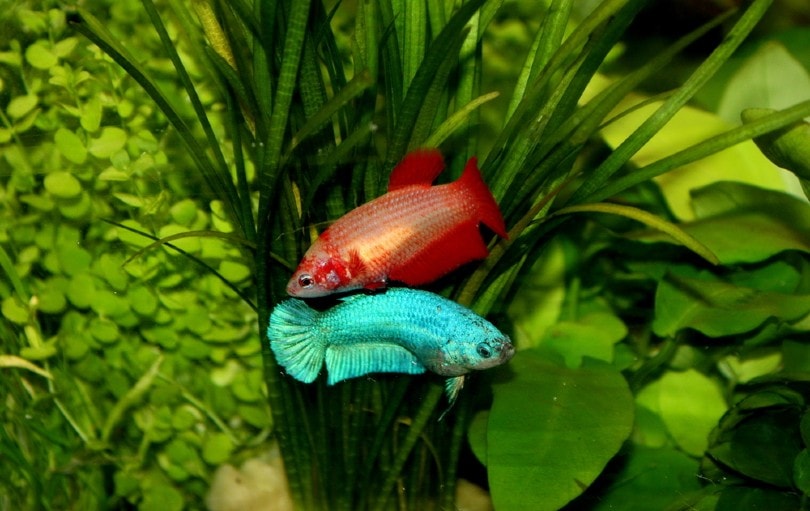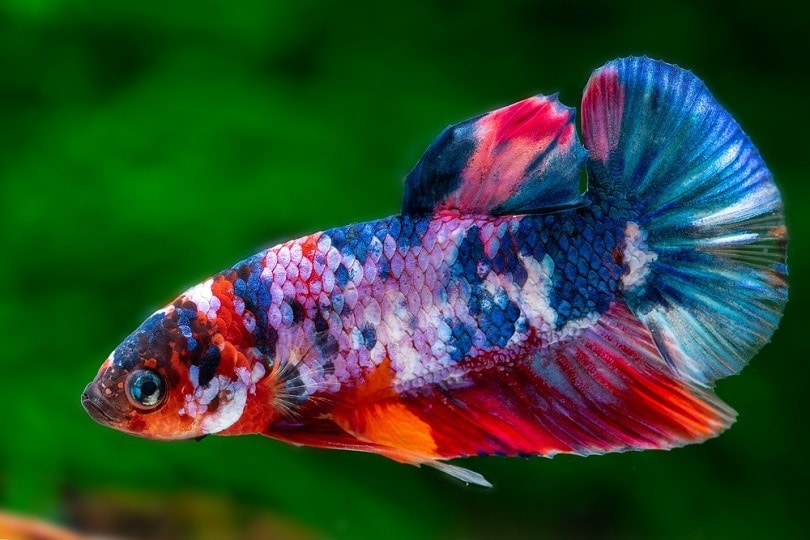
Click to Skip Ahead
Bettas are some of the most popular freshwater fish kept as pets, and it’s easy to see why. Bettas are beautiful fish that come in a variety of shapes and colors, and they can have fun and interesting personalities. They are also generally easy to care for, making them a good option for first-time fish keepers. What many people don’t realize is that Bettas can live for 2 to 5 years if cared for properly.
What’s the Average Lifespan of a Betta Fish?
On average, Bettas live between 2 to 5 years. The life expectancy for Betta fish is the same for both captive and wild Bettas. However, there are factors that can shorten the lifespan of wild and captive Bettas, so the lifespan is pretty even between both. This isn’t always the case, though, as captive animals sometimes live much longer than their wild counterparts.

Why Do Some Betta Fish Live Longer Than Others?
1. Nutrition
Bettas are obligate carnivores that require a high amount of protein in their daily diet to maintain their health. In the wild, Bettas eat a variety of protein sources, including small crustaceans and larvae.
Some people make the mistake of feeding their Betta the same food as any other fish they have. Community and omnivore foods are often not appropriate for Bettas, and it’s best to only feed a Betta fish food that is specifically formulated to meet the needs of Bettas. With inappropriate food, Bettas will have a significantly shortened life expectancy.

2. Environment and Conditions
In the wild, Betta fish live in areas where the dry season often leaves them living in small spaces with shallow water for months at a time. They are capable of living in small environments with poor water quality for these periods, but Bettas are not built to live in cramped spaces with poor water quality permanently.
Some people make the mistake of keeping their Bettas in small tanks with poor water quality, mistakenly believing that this is ok since it’s how Bettas live in the wild. However, they do not permanently live this way. When the environment is inappropriate and unhealthy, the lifespan of your Betta will be shortened significantly. Also, it’s the responsibility of all fish keepers to provide a healthy environment for their fish.
3. Aquarium
Betta fish are relatively small fish, rarely reaching 3 inches in length. This often leads to misunderstandings about the size of the aquarium Bettas need. Ideally, a Betta should have an aquarium that is at least 5 gallons, with 10 gallons being preferable. This will allow plenty of space to move, as well as ensure water quality stays high.
Bettas are often kept in tanks that are far too small, though. Some people keep them in bowls that aren’t even a gallon in size. A smaller tank means poor water quality and the potential for more stress on the fish, decreasing the lifespan.
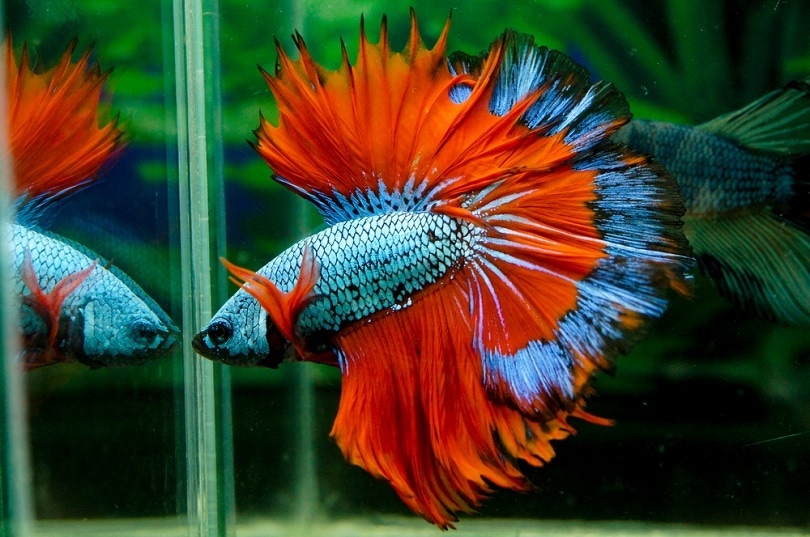
4. Size
In captivity, the size of a Betta fish doesn’t seem to have any bearing on their life expectancy. In the wild, though, smaller Bettas are at an increased risk of experiencing predation from larger fish.
It can be very dangerous to be a small fish in the wild. While adult Bettas aren’t particularly large, young Bettas are small enough that they have a high mortality rate from predation.
5. Healthcare
In captivity, Bettas have access to something that wild Bettas don’t: modern medicine. There are lots of products on the market today that can help to maintain water quality, as well as treat medical conditions.
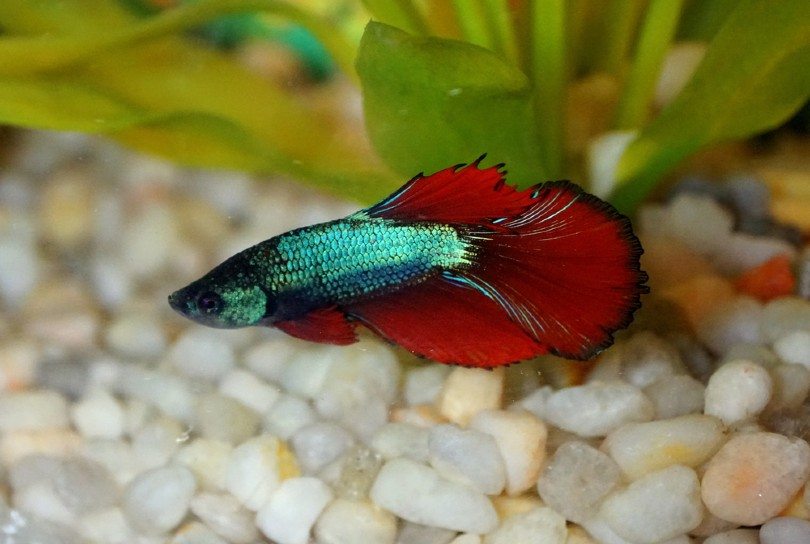
 The 5 Life Stages of a Betta Fish
The 5 Life Stages of a Betta Fish
1. Egg
Bettas begin their life as an egg. Male and female Bettas come together to create a clutch of fertilized eggs, which the male Betta will guard. He will care for the eggs, even placing loose eggs back into the bubble nest holding the eggs. He will protect the eggs from predators and environmental factors until they hatch.

2. Fry
Once they hatch, Betta fish are considered to be fry. They are only around 0.1 inches in size at the time of hatching. For the first few days after hatching, Betta fry won’t need to eat because they will continue to absorb nutrients from the remainder of the egg. They will remain in the fry stage for the first few weeks of life.
3. Juvenile
Juvenile Bettas are more than a few weeks old, but are not old enough to reproduce and are still growing. These fish are smaller and less developed than adult Bettas, but colors and fin growth will start to come in during the juvenile stage.

4. Young Adult
Around 4 months of age, Betta fish will reach sexual maturity and be able to start reproducing. It’s typically recommended to only breed Betta fish between the ages of 4–12 months. After 12–14 months of age, there is a possibility that Bettas will begin producing unhealthy fry.
5. Mature Adult
Betta fish are usually finished growing around 6–7 months of age. Some fish may continue to grow beyond this point, but they rarely grow past 10–12 months of age. Betta fish will continue to reproduce in the wild throughout most of adulthood, but there is an increased risk of unhealthy offspring in older fish.
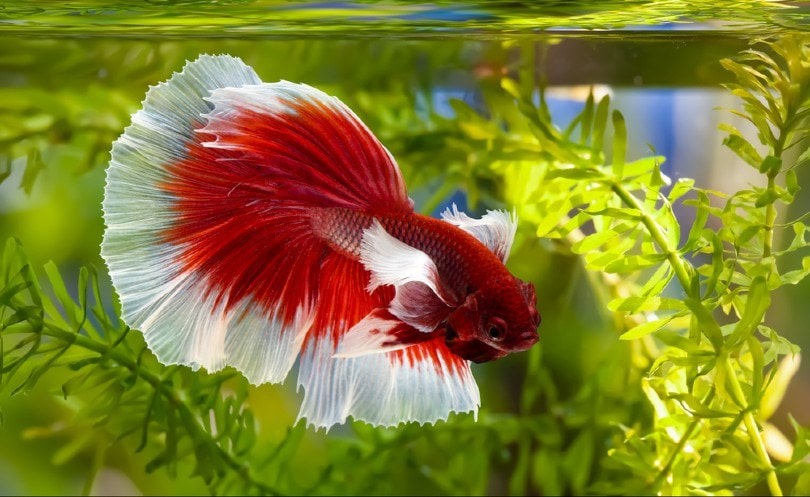
How to Tell Your Betta Fish’s Age
If you purchased your Betta from a pet store, then you can expect them to be 6–12 months of age at the time of purchase. Male Bettas may be sold at an older age than females so they have fully developed their colors and finnage to make them more appealing for sale.
Since females lack the bright colors and long fins that males have, females may be sold at around 6 months of age. There’s no way to fully determine the age of your Betta, but you can estimate their age based on when you purchased them and if they continued to grow beyond that point.
 Conclusion
Conclusion
Betta fish can live up to 5 years with proper care, but it’s not uncommon for them to have significantly shortened lives due to improper care. There is a lot of misunderstanding of how to properly care for Betta fish. It’s important for people to fully understand and commit to the care of a Betta before bringing it home to ensure the fish has a long, healthy life.
- See also: Where Do Betta Fish Come From?
Featured Image Credit: Ron Kuenitz, Shutterstock


